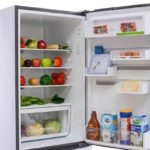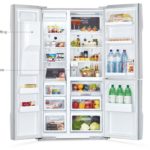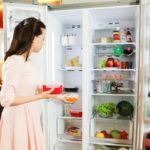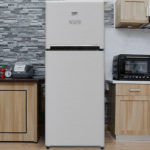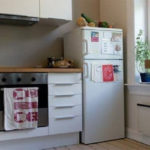-
1 Proper Placement
It is important to keep the refrigerator away from heat sources such as walls. Placing the refrigerator in a cool area will prevent it from overheating and impacting its operation. The refrigerator should be positioned approximately 10cm away from the back wall and about 2cm from the sides to allow for proper heat dissipation. Additionally, elevating the refrigerator about 5cm from the ground aids in moisture prevention and enhances heat dissipation process.
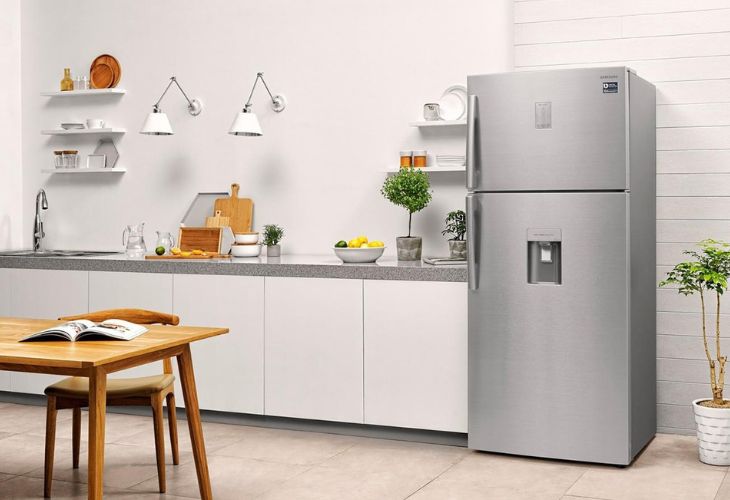
Proper placement of the refrigerator away from heat sources -
2 Select Suitable Capacity
Before purchasing a refrigerator, it is essential to consider the number of family members to choose an appropriately sized one. A small capacity won’t meet the food storage needs, while a large capacity will result in excessive power consumption.

Best for a family of 3-4 members. You can use the following table as a reference when selecting the appropriate refrigerator capacity:
Usable Capacity Number of Family Members Common Cabinet Type Price 1-2 members or Under 5 million VND 2-3 members From 5-16 million VND 3-4 members From 8-32 million VND 4-5 members or From 13-65 million VND More than 5 members or From 14-70 million VND -
3 Proper Temperature Regulation
It is crucial to set the correct temperature for the refrigerator and freezer. Adjusting to high temperatures to save electricity might lead to food spoilage, while setting temperatures too low will waste energy. The recommended temperature settings are approximately 2-4 degrees Celsius for the refrigerator and around -15 degrees Celsius for the freezer.
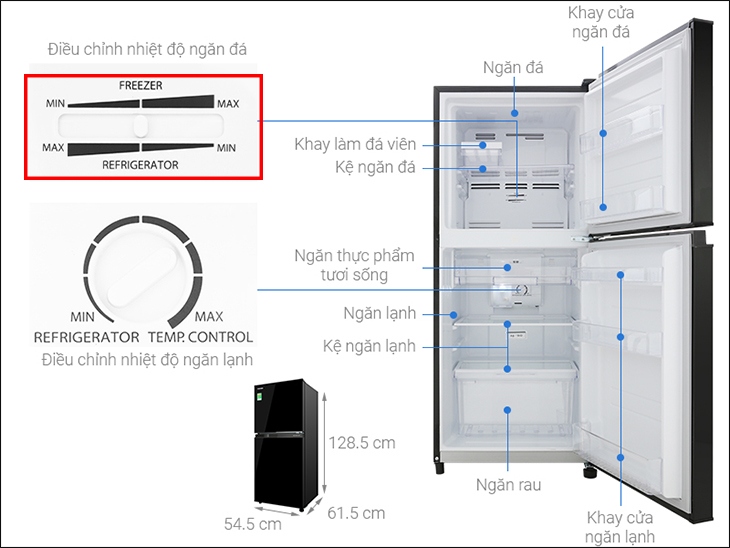
Adjust the freezer temperature on the refrigerator -
4 Limit Frequent On/Off Cycles
Avoid frequent on/off cycles as each restart consumes a significant amount of energy. If the refrigerator will not be used for an extended period, it’s advisable to disconnect the power, clean the interior, remove any food, allow the refrigerator to dry before closing the door to prevent bacterial growth.
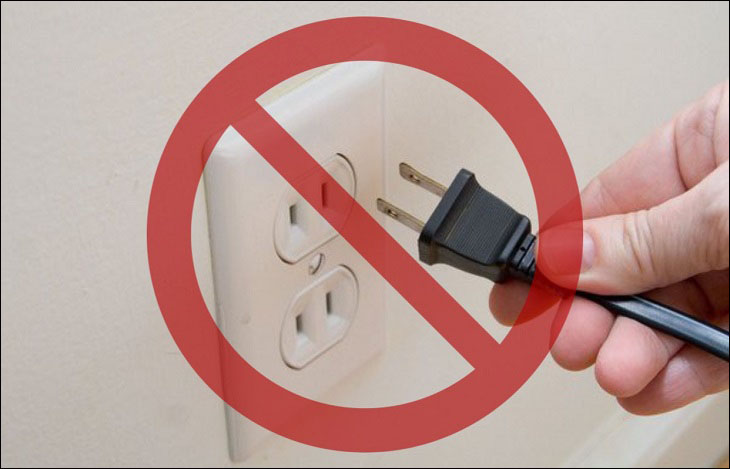
Avoid frequent unplugging of the refrigerator -
5 Turn Off Automatic Ice Making
When there is no need for excessive ice usage or when there is already enough ice, it’s recommended to turn off the automatic ice making feature to save electricity.
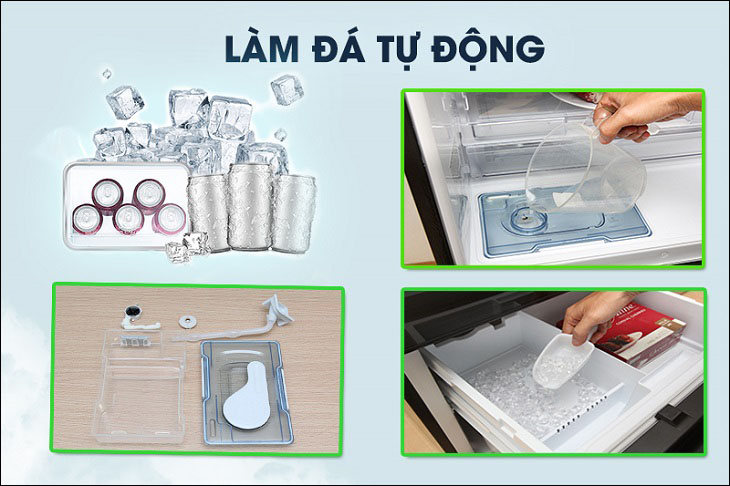
Turn off the automatic ice making feature to save refrigerator power -
6 Periodically Defrost Freezer
For older refrigerators without the self-defrosting feature, it is necessary to regularly defrost the freezer to prevent excessive power consumption and space occupancy due to snow buildup.
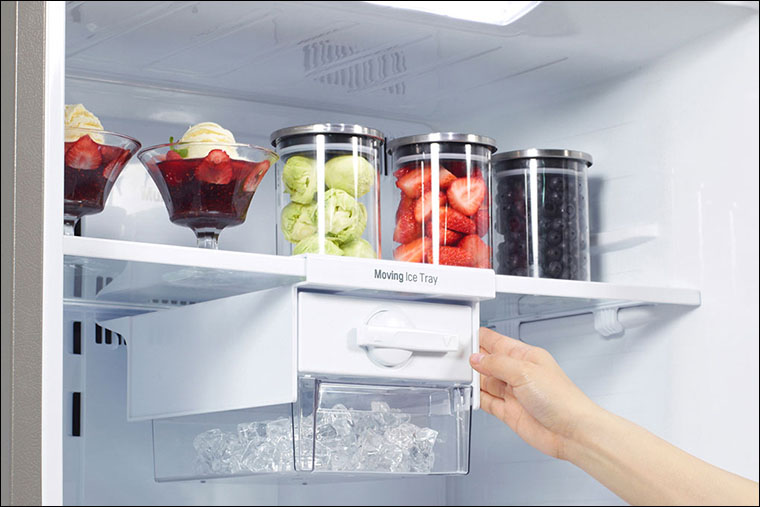
Periodic defrosting helps save energy -
7 Regular Condenser Cleaning
The condenser, located at the back of the refrigerator and made of metal, is responsible for heat dissipation. Cleaning the condenser every 6 months is essential to prevent dust and dirt buildup. A clean condenser ensures stable compressor function and energy efficiency.
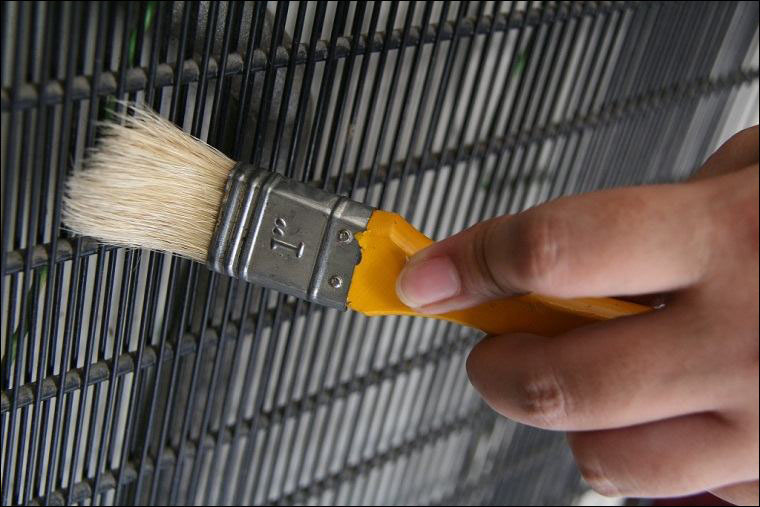
Cleaning the condenser with a brush -
8 Regular Refrigerator Cleaning
Regularly cleaning the refrigerator helps prevent the growth of bacteria and mold, promoting better heat dissipation. Cleaning the refrigerator every 1-2 months is recommended for effective energy savings. Additionally, it’s advisable to check the refrigerant gas level annually to avoid compressor overload and unnecessary power consumption.
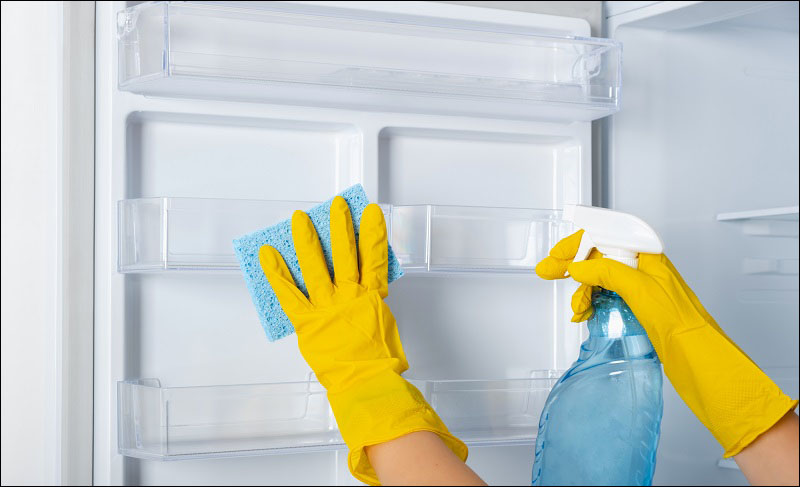
Periodic cleaning of the refrigerator -
9 Regularly Check Door Seal
The rubber gasket on the refrigerator door prevents cold air from escaping when the door is closed. If the rubber seal is bent or torn, it can lead to cold air leaks, causing the compressor to work harder and wasting electricity. Regularly inspect and repair any issues with the door seal to maximize energy savings.

Regularly check the door seal -
10 Limit Opening Refrigerator Door
Avoid leaving the refrigerator door open for extended periods as it causes the compressor to continuously adjust the temperature, resulting in energy waste.
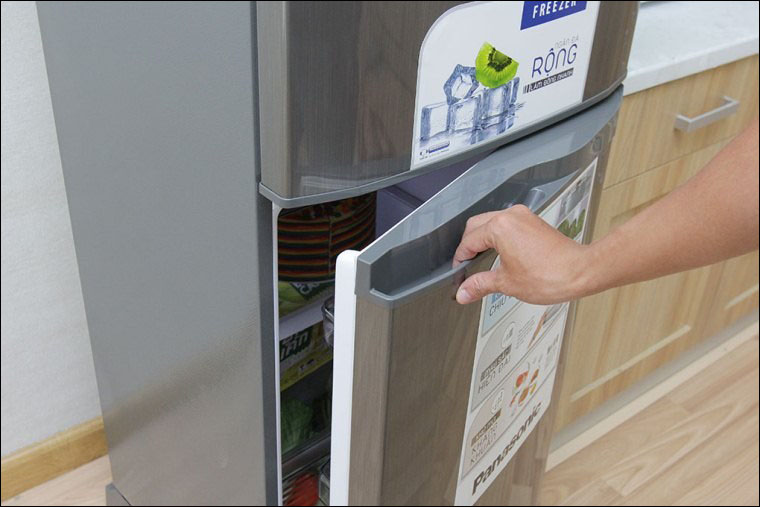
Open and close the refrigerator quickly to save electricity Modern refrigerators are often equipped with a notification bell that alerts when the door is left open for too long or accidentally closed partially.
-
11 Properly Cover and Store Food
Covering and sealing food before storing it in the refrigerator helps minimize odor generation and preserves the quality of the food. Proper sealing allows the compressor to regulate humidity effectively and operate at a lower capacity, resulting in significant energy savings.
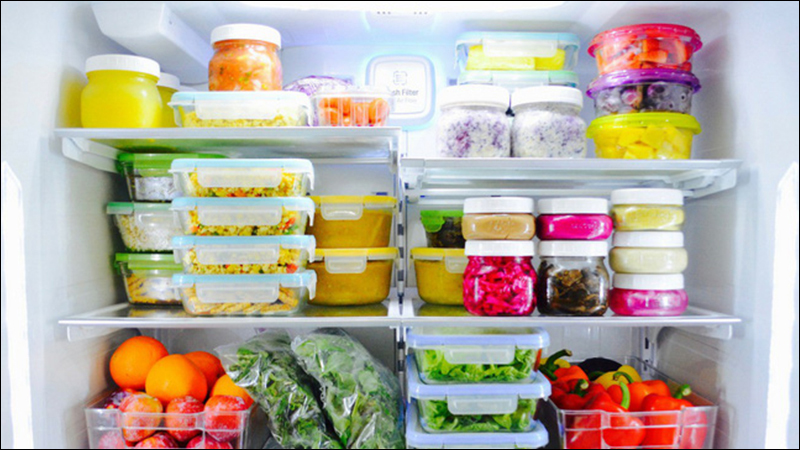
Store food in proper containers before placing in the refrigerator -
12 Avoid Putting Hot Food in the Refrigerator
Placing hot food in the refrigerator raises the internal temperature, causing the compressor to work harder to cool down the food. This leads to increased energy consumption. Allow the hot food to cool down before placing it in the refrigerator.

Avoid putting hot food directly into the refrigerator -
13 Optimize Refrigerator Fill Level
Avoid overfilling the refrigerator with food. Leave enough space between the items to allow for proper air circulation and reduce energy consumption.
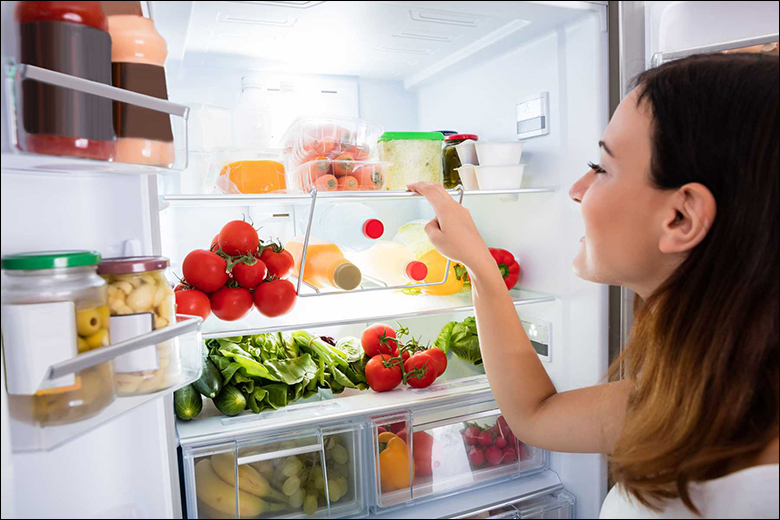
Optimize the amount of food in the refrigerator -
14 Use Glass or Porcelain Containers
Using glass or porcelain containers helps maintain a more balanced temperature inside the refrigerator and prevents bacteria from entering the food. Ensure the containers are tightly sealed to prevent food spoilage and maximize energy efficiency.
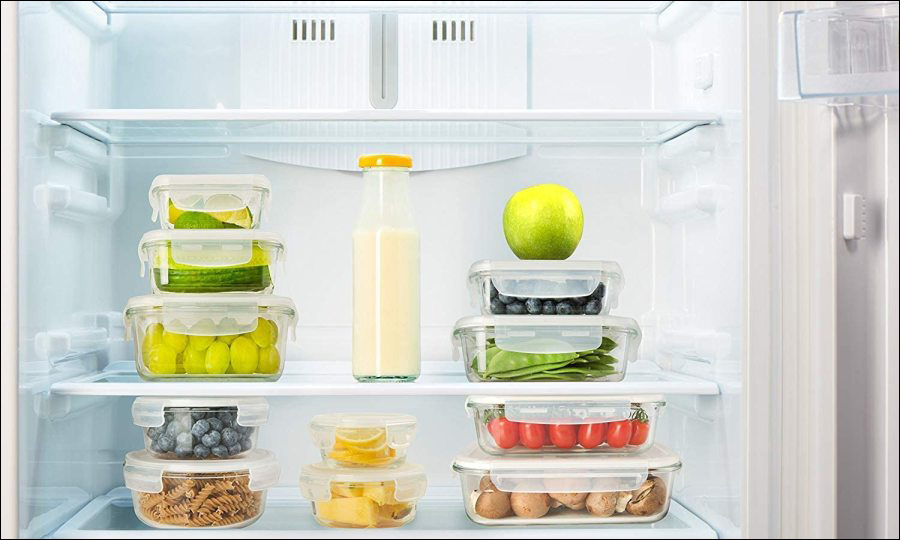
Use glass containers for storing food in the refrigerator
14 Tips for Maximizing Fridge Energy Efficiency
Do you want to save electricity and money while keeping your food perfectly fresh? Dien May XANH has compiled 14 ways to help you do just that! Find out how you can optimally conserve electricity in your home today!
You may also like
























